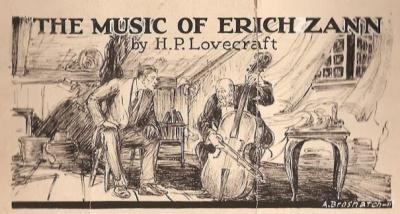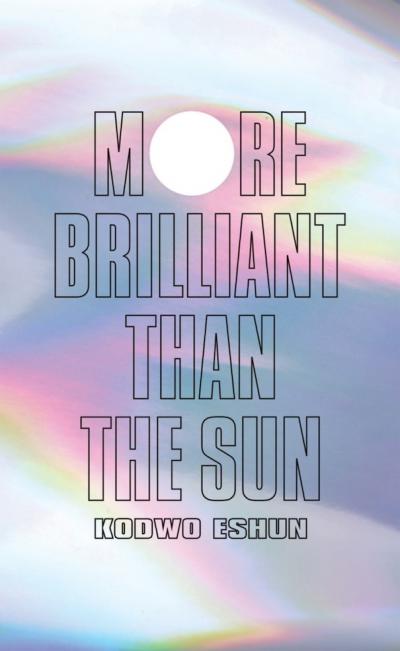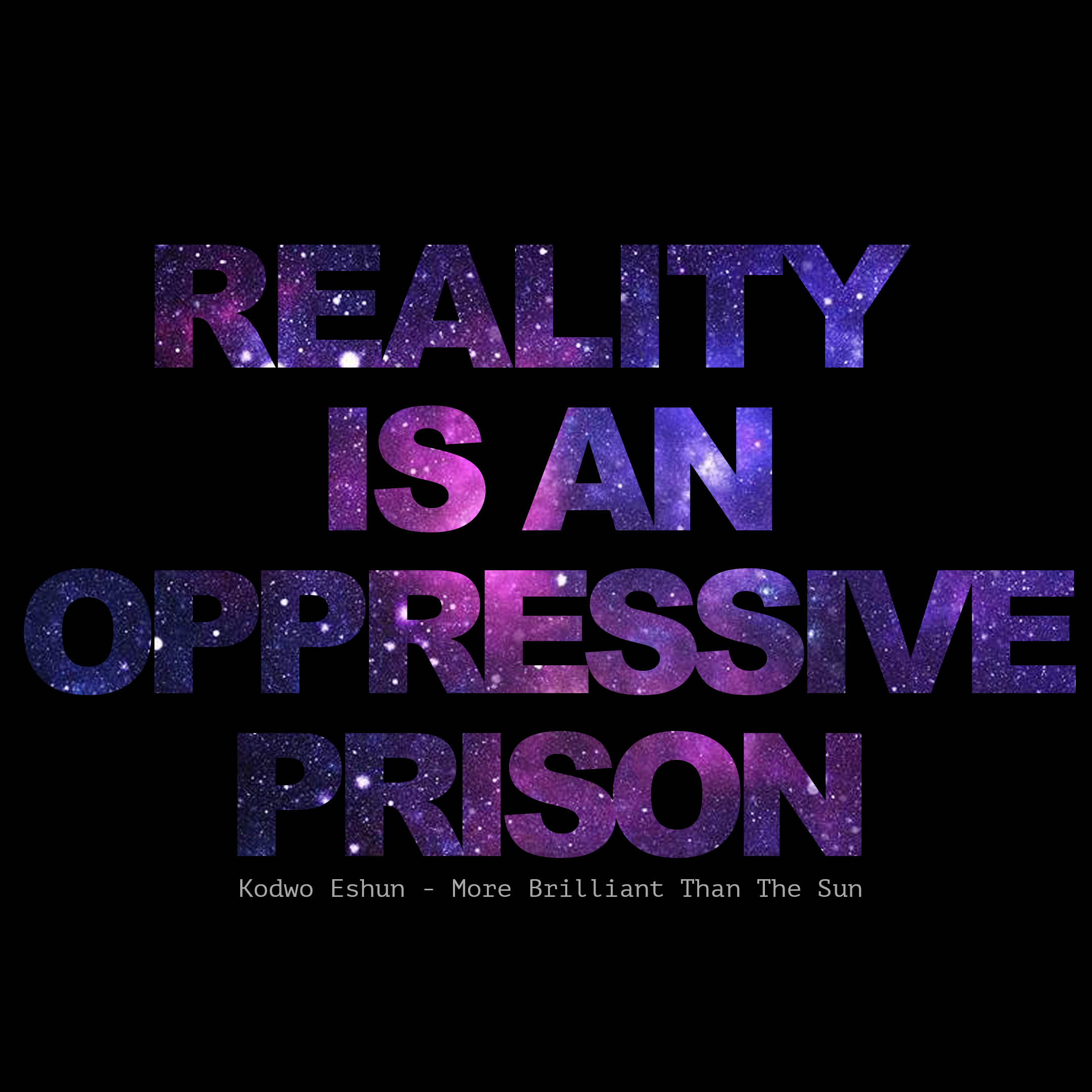
Sound Creates Reality: Sonic Fiction
Music is not escapism. It is a machine that creates reality. This was the core of Kodwo Eshun's masterful book More Brilliant than the Sun: Adventures in Sonic Fiction. For musicologist Adam Harper, the concept of Sonic Fiction challenges the oppressive prison called reality.
Sound is fact, music is fiction. Or rather, sound as it exists as an acoustic phenomenon or an electric signal has an empirical reality; sound recordings have a documentary quality akin to photography. Music, conversely, involves manipulation in the generation and arrangement of sounds for the purposes of contrivance, performance, fantasy, fictions — alternative realities. These alternative realities may in turn become new empirical realities. As such, music is (to paraphrase Picasso) the lie that tells the truth.
Music's role as a reality engineering machine is at the core of Kodwo Eshun's masterful 1998 book on futurist popular musics such as funk, dub, hip hop, and techno, More Brilliant than the Sun: Adventures in Sonic Fiction, which will be republished this year by Verso Books with a new introduction by dubstep pioneer Steve Goodman aka Kode9. Note the subtitle. In fact, the introduction is entitled «Operating system for the redesign of sonic reality». Eshun treats music as a form of science fiction, one that we experience in uniquely embodied ways, but one directly comparable with the aims and effects of the genre in literature.
An Emblem of Wider Social and Technological Changes
Indeed, music has been discussed and presented in fictionalised narrative contexts since at least the Ancient Greeks, as part of the dialogue form of philosophising, practiced until the early Baroque era by music critics such as Artusi. Storytelling and song were for centuries much less separated forms than they are today. But since Romanticism's fascination with fantastical worlds, music and the modern understanding of fiction have been closely intertwined, even in purely instrumental music. Symphonic music became illustrative and took on narratives. Music frequently played a special role in early fantasy, gothic and science fiction stories. E. T. A. Hoffman's fictional composer Johannes Kreisler and his compositions appeared in many of his texts. In 1921 H. P. Lovecraft wrote «The Music of Erich Zann», about a viol-player who keeps interdimensional horrors at bay with surreal melodies. Music frequently appears in science fiction as an emblem of wider social and technological changes, such as in the 1996 film Gattaca, about a future of genetically engineered, exclusive elites, which featured a performance of a piece playable only by pianists with twelve fingers.

Engineering the Self
Musicians have long fictionalised themselves (Sgt. Pepper's Lonely Hearts Club Band and Ziggy Stardust are two of the most famous examples), but usually the line between fiction and reality is somewhat blurred. But this is one of music's functions as a form of engineering of the self and the world and the relation between the two. Elysia Crampton once told me in an interview that her music engages with the «monstrosity of the embodied dream of an erased family, a lost history that I re-build, scraping utopias, a minimal place of freedom». Crampton does this inventively, to beguiling degrees of consciousness, but it is something that all music does, whether made or listened to.
Music’s Flight of the Imagination
Eshun understands such a process in More Brilliant Than the Sun in his reflections upon Cybotron's early techno track «Techno City»:
«Techno City»… is Sonic Fiction: electronic fiction, with frequencies fictionalized, synthesized and organized into escape routes. Sonic Fiction replaces lyrics with possibility spaces, with a plan for getting out of jail free. Escapism is organized until it seizes the means of perception and multiplies the modes of sensory reality.
«Which is why you should always laugh in the face of those producers, DJs and journalists who sneer at escapism for its unreality, for its fakeness; all those who strain to keep it real. These assumptions wish to clip your wings, to tie your forked tail to a tree, to handcuff you to the rotting remnants of tradition, the inherited stupidities of habit, the dead weight of yourself. Common sense wants to see you behind the bars it calls Real Life».
As Eshun provocatively puts it, «reality» and all its attendant authenticities is an oppressive prison compared with music's flight of the imagination. When the mind, body and perspective become reordered, a new reality begins to take shape.

Biography
Published on April 03, 2018
Last updated on April 10, 2024
Topics
How do musicians fill or widen the gap of feeling at home in a world that is radically unhomely?
From afrofuturist parallel worlds to decoding strategies of emancipatory sounds: Examinations of music striving for a life worth living.
Special
Snap

